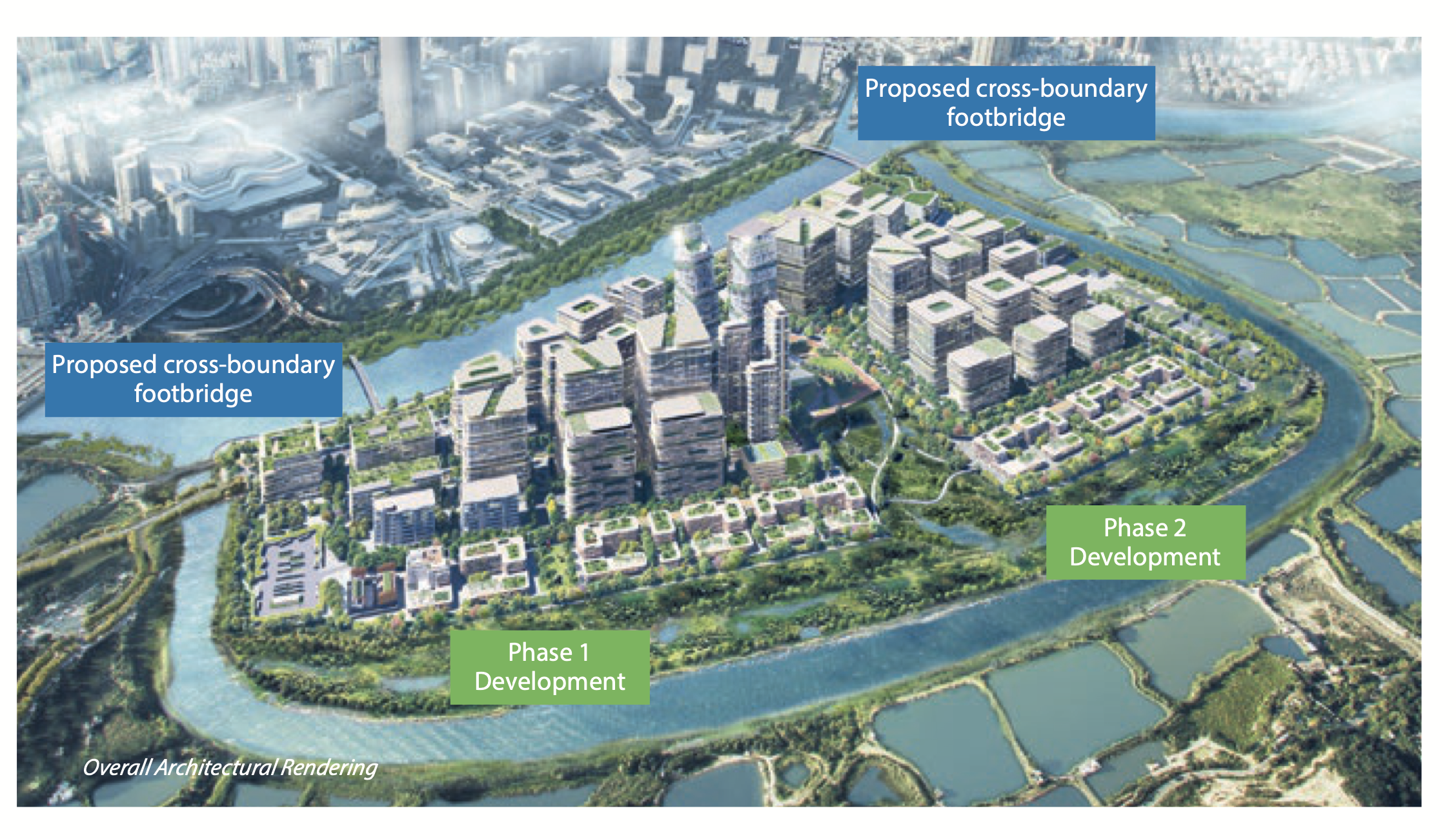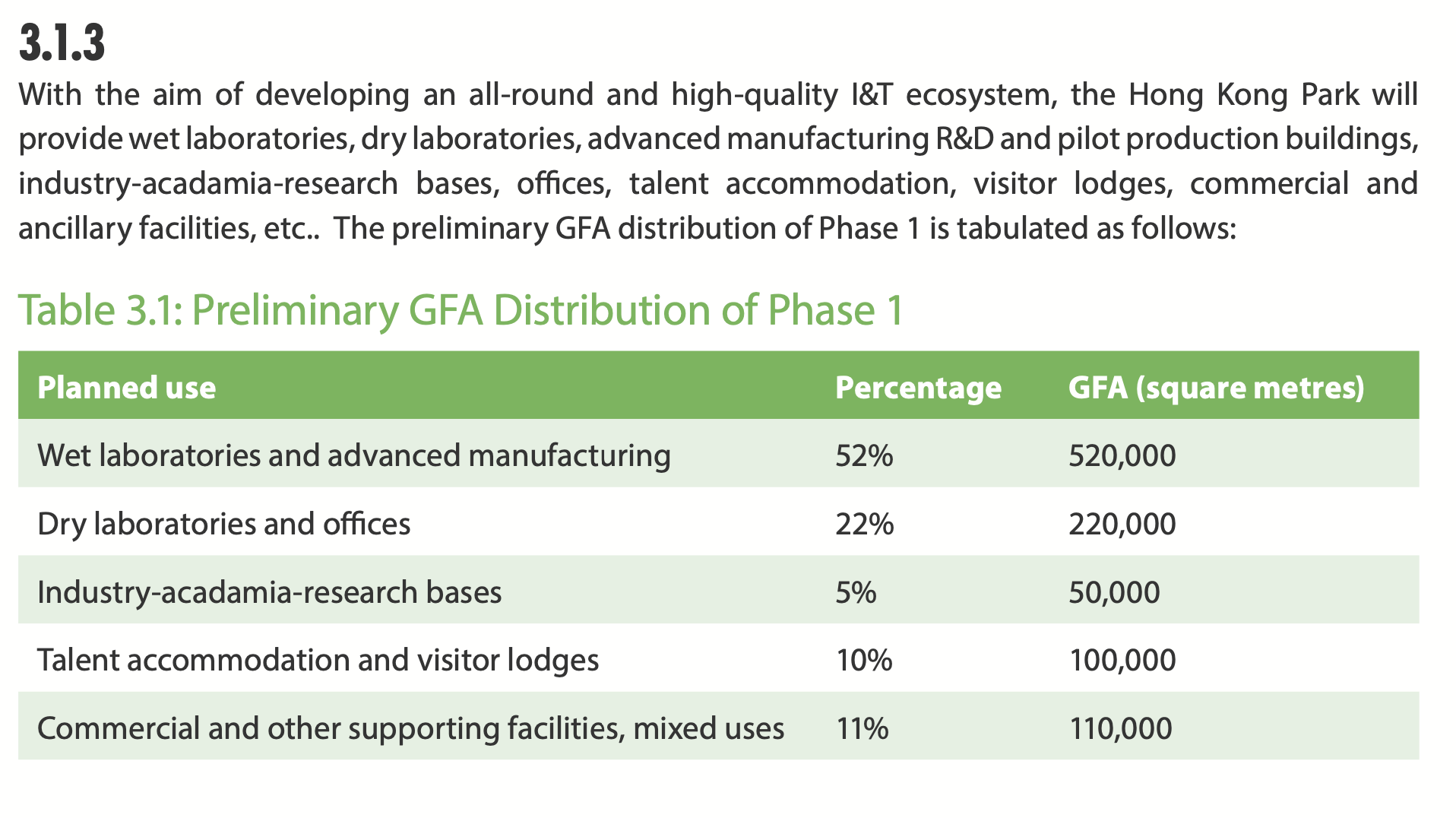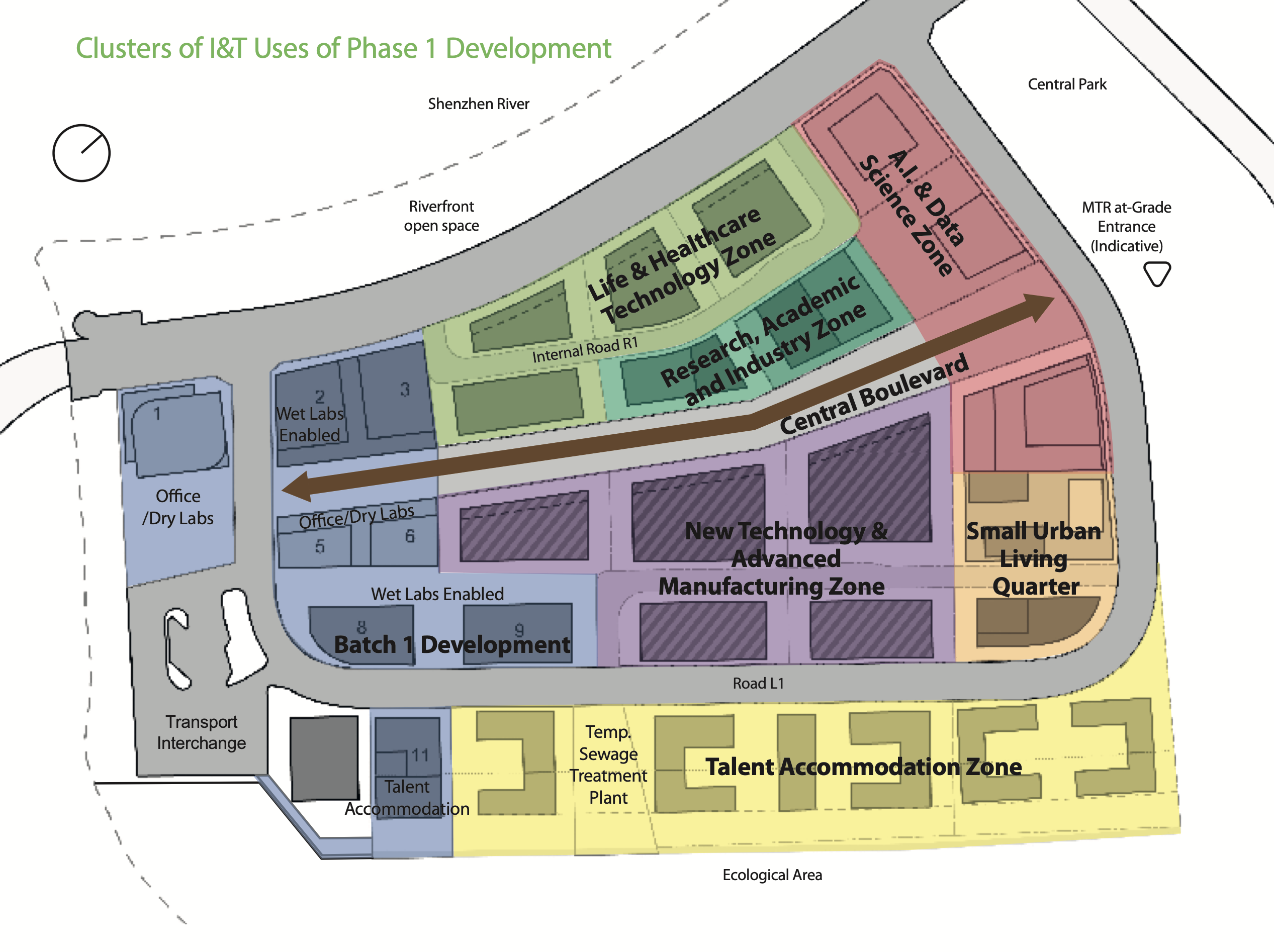
The Hong Kong side of twin science parks at the border by Lok Ma Chau is set to open soon, with the first companies due to move in by the end of September, the city’s innovation chief revealed.
“We are currently wooing tenants and investors, hoping that some companies will start up in in one or two months,” said Secretary for Innovation, Technology, and Industry Sun Dong in an exclusive interview with China Daily.
Sun said a ceremony to mark the opening of the 87-hectare Hong Kong Park in due course.
READ MORE: HK Park in Hetao tech zone to open first buildings next year
The first tenants are expected to be from industries such as life and health technology, AI and data science. The first three buildings of the first phase of Hong Kong Park were completed in March.
In a previous interview with local media, Vincent Ma Wai-shin, CEO of Hong Kong-Shenzhen Innovation and Technology Park Limited that operates the Hong Kong Park, revealed that several tech companies have already signed contracts to move in, with around 30 more—both domestic and international—close to finalizing deals, reflecting strong market interest.
The Hong Kong Park, situated in the Lok Ma Chau Loop in the northernmost part of Hong Kong, is part of The Hetao Shenzhen-Hong Kong Science and Technology Innovation Co-operation Zone — the "one zone, two parks" concept laid down by the country as a major collaboration platform in Guangdong-Hong Kong-Macao Greater Bay Area (GBA).

A flagship program in Hong Kong’s innovation and technology development, the Hong Kong Park, four times bigger than the city’s Science and Technology Park in Sha Tin, is aiming to become a pilot production base for industries and will be a test ground for the cross-boundary flow of important elements, such as personnel, materials, capital and data.
Pilot testing, which requires less space for small scale production, allows the city — constrained by the land shortage — to accommodate more industries within a limited space and thereby help draw in talents through more industries, Sun said.
Pilot production is a transitional experiment that steers the outcomes of scientific research and technological development, which possess practical value, towards industrial production, representing a critical phase in accelerating the industrialization of results.
Sun acknowledged that the 30,000 square meters provided by the two laboratory buildings is limited, however, he believes it represents a positive start.
The completed buildings are two laboratory buildings and a talent dormitory tower.
The other five buildings of the initial phrase will be finished progressively from 2027 onwards, Sun said.
The Hong Kong Special Administrative Region government has allocated HK$3.7 billion ($47 million) to expedite the infrastructure and public facilities for the first phase of Hong Kong Park, and will attract more industry investors to help the construction.
Planning for the second phase is expected to be completed within this year. “The construction is on schedule,” Sun said.
Sun commented that he expected the Hong Kong Park will play a critical role, including strengthening collaboration among industry, academic and research sectors, and leveraging Hong Kong’s dual roles in “going global and attracting foreign investment”.
Noting a probable increased demand for the flow of people, capital, and information once the park opens, Sun said the bureau will expedite efforts to secure preferential policies on the implementation of innovation and technology elements and cross-border movement with Chinese mainland departments.
In 2023, the city signed a memorandum of understanding (MoU) with the Cyberspace Administration of China (CAC) to facilitate cross-boundary data flow within Greater Bay Area.
Facilitating the flow of sensitive data under a safe framework can empower development across various industries and sectors, Sun said, adding that such an arrangement can be expanded to other cities such as Shanghai.
“We hope to further establish Hetao as a digital pilot zone, as the flow of information is vital.”
Sun said the SAR government is discussing details with the central government and hopefully there will be further breakthrough as regards Hetao.
Hong Kong has distinct advantages for developing industries, as it serves as a vital bridge linking the nation and the world, and has unique characteristics to help businesses go global.
Sun noted that the climate for innovation and technology development in Hong Kong has greatly improved, which is highly regarded by enterprises, as I&T development can empower various industries.
READ MORE: Greater Bay Area collaboration key to Hong Kong’s future

By the end of 2024, Hong Kong had about 4,700 startups.
He quoted the latest government data and pointed out that the added value of Hong Kong’s manufacturing and new industrialization-related industries reached HK$76.8 billion in 2023, marking an increase of 7.6 percent from 2022 and accounting for approximately 2.6 percent of gross domestic product (GDP). The indicator, covering economic activities relating to manufacturing, innovation and new industries, is aimed to more accurately reflect the economic performance of the manufacturing industry and new industries in Hong Kong.
"We hope to construct a thriving ecosystem for Hong Kong’s I&T industry," Sun noted, adding that he believed that with the gradual improvement of this ecosystem, more Hong Kong youths will engage in the I&T industry, which can, in turn, foster the advancement of the SAR's I&T development.
Contact the writer at atlasshao@chinadailyhk.com


